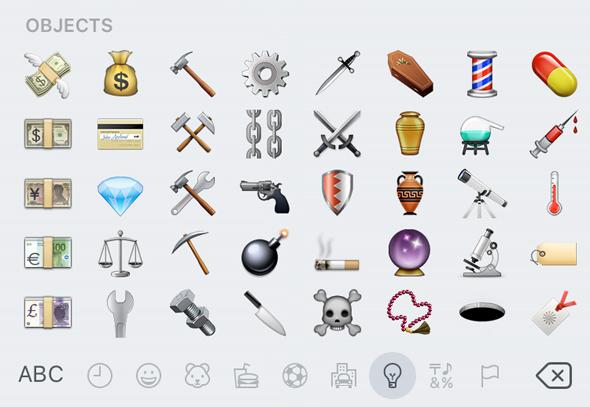Emojis may seem frivolous, but in their depictions of the world they reflect currents in society. It’s a lot of pressure for one little 👻 or 🐘, and discussions about the approval of new emojis are getting increasingly political.
Buzzfeed reported on Friday that Apple lobbied the emoji technical standards body, Unicode, to eliminate a rifle emoji from the new set of pictograms coming in this June’s Unicode 9.0 release. Though these discussions were reportedly happening last May, news of the negotiation is especially resonant in light of this week’s Orlando shooting.
Generally, Unicode proposes new emojis that are then approved by the consortium of stakeholders without any trouble. Then they are encoded so they can be available and displayed across different devices and platforms. There is already a handgun emoji (above), and Unicode had apparently proposed the rifle as part of a set of emojis pegged to the Olympics. But Apple and Microsoft, two of the 12 full voting members of the Unicode consortium, argued that a second gun was unnecessary. Eventually the rifle and a pentathlon emoji (which showed a man with a pistol) were rejected.
An anonymous source who was present during the rifle discussion told Buzzfeed, “I heard Apple speak up about it and also Microsoft. … Nobody in the room seemed to mind not encoding the rifle.”
Apple has championed socially conscious emojis as well. In 2014 the company openly supported adding racial diversity to the character set, and worked with the consortium to implement this quickly. Additionally, Ars Technica points out that macOS used to exclude the gun, knife, and other violent symbols from its emoji picker.
As emojis become more mainstream and less of a geeky curiosity, the battles over what to include and exclude from the set will probably heat up more and more. A proposal from May currently before the consortium grapples with how to handle upcoming challenges. “There is more public awareness of [emojis]: more public pressure to implement them, but also more public scrutiny of them. Hence, it makes sense to first make sure that there is reasonable commitment to significant support before encoding.”
Given how polarizing some social issues are in the U.S., it looks like emojis are doomed to be politicized, too.
